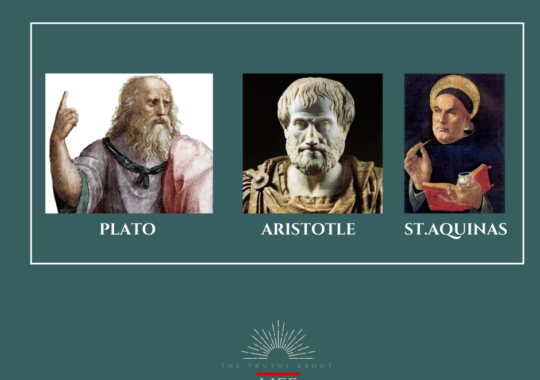There is evil on the Earth. It’s a fact. People were created out of something or someone. It’s also a fact. But, why? For what reason, purpose? We keep on wondering and trying to find the answer to the most complicated question ever, but it seems that we keep failing in proving any theory as valid. Sure, some theories might seem more valid or possible than others, but at the end they still remain just theories.
When trying to tackle this issue, we always seem to come across of same, important question. How can there be an evil on the Earth if the God is so powerful, almighty, all-knowing and perfectly good? How it is even possible that evil exists than on Earth?
One might say that there is high level of inconsistency in the upper statements. If God is so powerful, why doesn’t he than stop the suffering on the Earth? If he is so all-knowing, how could he not know that such devastating evil will continue to happen, here on Earth? If he is so perfectly good, how can he stand to see all this suffering happening?
On another hand, according to Plantinga, who is widely known and highly recognised American analytic philosopher (to find out more about him visit this article) there are two options about coexistence of God and evil:
1 – God doesn’t exist because there is inconsistency in statements above and more over all of these statements can’t be true at the same time.
2 – God exists and allows evil for the sake of free will. In this theory God created humans with free will, which also results in some level of evil, and at the same time there is also some level of moral good by other part of the free people. If there would be no free will, there would be also no moral good.
Not only Plantinga, also other recognised philosophers, such as Plato, Socrates, Aristotle, Thomas Paine and many more tried to tackle this issue and one could say that theory of each could be valid. All religions addressed this issue, each in a bit different way. Let’s summarise very quickly their standpoints and theories of different religions across the globe about this really difficult question:
Plato – in his Republic he says that the evil might come from a sin in the previous life, or that might even be necessary for the greater good, which we can’t really understand at this moment – e.g. in this life here on Earth.
Thomas Paine – he considered God to be a divine figure, a creator of this world, who just created this world and then simply backed off, so that people could follow their free will and this exactly resulted in the evil and suffering that comes along with the free will.
Saint Thomas Aquinas – his theory was a bit more complicated. He linked evil not the the person itself, but rather to the subjective conception of the relations between things or people. He believed that bad outcomes are results of incidental actions coming from initially good purpose, so by his theory the ultimate cause of evil is actually good – even if we cannot really understand this greater good sacrifice.
Then there was Friedrich Nietzsche with his Theory of Eternal Return, which seems maybe the most scary one, as it assumes that there could be reoccurrence of your life in indefinite number of times. Each pain, each sweat and tear will be repeated again and again and again in your next life, with no change what so ever. You will live the same life over and over again. Would you try to avoid any wrong doing if you knew that his theory was valid? Would you avoid wrongdoing just because of this theory? If so, is there any morality in such action? Yep, hard one, I know.
The Bible – evil is considered to be everything that it opposed to God and his will, everything that results in harmful behaviour. The ones who will not use any evil, will get a free pass to paradise in afterlife. The reasons of Bible, are more spiritual and moral, then justified or backed up with some rational explanation.
Islam – tries to address this issue, by explanation that current world is just some temporary world in which we need to prove that we are worth of the paradise in afterlife (I see some similarity here with the Bible, by the way). In our time on Earth we are not capable of understanding the existence of evil, but we’ll understand it once when we come into afterlife – but this is just for the believers. The ones who didn’t believe in their God and afterlife, they simply just suffered with the evil on Earth and after death, that was it for them. There was no afterlife, no explanation, no nothing, just suffering on the Earth and the believers were rewarded with the revelation of the truth in afterlife.
Judaism – through time, it had many different theories, from the one where it doesn’t even consider the problem of evil, to the one where the evil is linked to the problem of Holocaust, where the God either didn’t care about the problem of evil or where God wasn’t even aware that this problem was involving. One of the latest theories are explaining similar as in the Christian Bible and Islam, that the evil exists for the greater good, which can be understand only in the afterlife.
Indian religions, such as Buddhism, Hinduism and Jainism are connecting evil with karma. Meaning that our past lives or actions are creating the circumstances of current life, so any evil from past will have an impact on our current life.
Summarising some of the important thinkers and most widespread religions, we can see many similarities, especially when it comes to the theories in which you need to be good in current life in order to earn the pass to afterlife, where everything is explained and repaid.
I believe that all theories are very interesting and at the end any or all of them could be valid. There is no significant proof that could abandon any of the theories, so all of them could be valid.
My question to you is: Which one do you choose? Why do you choose it? Is it just because it aligns with your religion or because you have some justification for it? I’d be happy to hear about your opinion down in the comments section!





